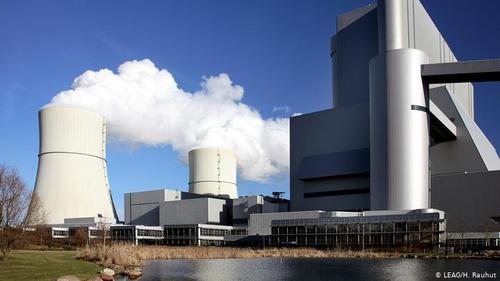Germany Schnitzels Itself After Ditching Nuclear, Coal Power For Green Pipe Dreams
As Germans continue to ‘enjoy’ the highest power bills in Europe, critics are warning that green energy solutions aren’t being deployed quickly enough amid the closure of its last nuclear reactor, and a sharp (and possibly early) reduction in coal electricity generation – putting the country’s ability to meet peak demand over the next two years in jeopardy.
This, as German Chancellor Angela Merkel’s party slumping to an all-time low in popularity.
As Bloomberg notes, the so-called “Climate Chancellor” announced Europe’s strictest emissions goals – yet, “the green power revolution she fronted for almost two decades is running out of steam just as the electrification of the economy will increase demand. “
“There is no doubt that security of supply must be high on the priority list of the next government and political action is urgent,” said RWE energy’s chief economist, Alexander Nolden. “The new climate law is a real game changer for Germany. It means a much higher ambition and will demand much higher speed for the changes needed.”
Merkel admits her government got it wrong. Power demand will probably increase more than official forecasts by the end of the decade, she said in June. A month earlier she recognized that increasing local opposition and too much bureaucracy have curbed investments in green power.
For a long time, Germany showed the world how renewable energy could be added to make up a substantial share of the power mix. Now, the Norwegian utility Statkraft SF says it takes twice as long to build a wind park in Germany compared with the U.S. Complaints from locals, a lack of space, stricter environmental standards and a longer permitting process are just some of the reasons growth is slowing. -Bloomberg
One frustrated German, Roland Schueren, owns 19 bakeries in western Germany. To save on electrical costs, he wants to add more solar panels to power his power-hungry ovens and electric delivery vans – however administrative red-tape is preventing him from doing so.
“We can’t build more photovoltaic, our roofs are full,” said Schueren – who’s now running for a Green Party parliamentary seat. “We could rent our neighbor’s roof and build more photovoltaic there, but this is not allowed. The energy transition is slowed down by the government.”
While Merkel’s coalition is still ahead in the polls, the Green Party has made considerable gains, and may be a serious force to contend with in the Sept. 26 election.
The ‘Climate Chancellor’ has a goal of reducing carbon dioxide emissions by 65% by the end of the decade – a goal which RWE said may change with the next government, which they speculate may revise the plan to only phase out the dirtiest form of coal.

Will it be enough? It’ll be close
According to European power analyst Sabrina Kernbichler with S&P Global Platts, the phase-out should be completed early next decade – requiring higher wind and solar output by at least 2030, along with updates to the grid. Alas for Germany, the margin of supply over peak demand is expected to plunge to 3%, or two gigawatts, down from a pre-pandemic 26%, according to BNEF.
And by 2026, output from coal plants could fall as much as 70% compared with levels prior to the Covid-19 crisis, BNEF said. At the same time, power consumption is poised to return to pre-pandemic levels next year, according to BNEF. Demand would then increase 4% by the end of the decade and as much as 25% by 2040, according to the researcher. -Bloomberg
And of course, if supply is squeezed, power prices would undoubtedly soar even higher – putting pressure on thousands of companies which fuel the German economy which are already dealing with wholesale rates that have jumped nearly 60% this year to their highest level since 2008. This, of course, is passed along to Germany’s 40 million homes who are already straining to pay Europe’s highest energy bills.
“Blackouts is one of the biggest risks we face,” said Thomas M. Adam, adding “Even a couple of days without stable power supply would be very serious.”
Tyler Durden
Tue, 08/24/2021 – 04:15![]()
Zero Hedge’s mission is to widen the scope of financial, economic and political information available to the professional investing public, to skeptically examine and, where necessary, attack the flaccid institution that financial journalism has become, to liberate oppressed knowledge, to provide analysis uninhibited by political constraint and to facilitate information’s unending quest for freedom. Visit https://www.zerohedge.com
